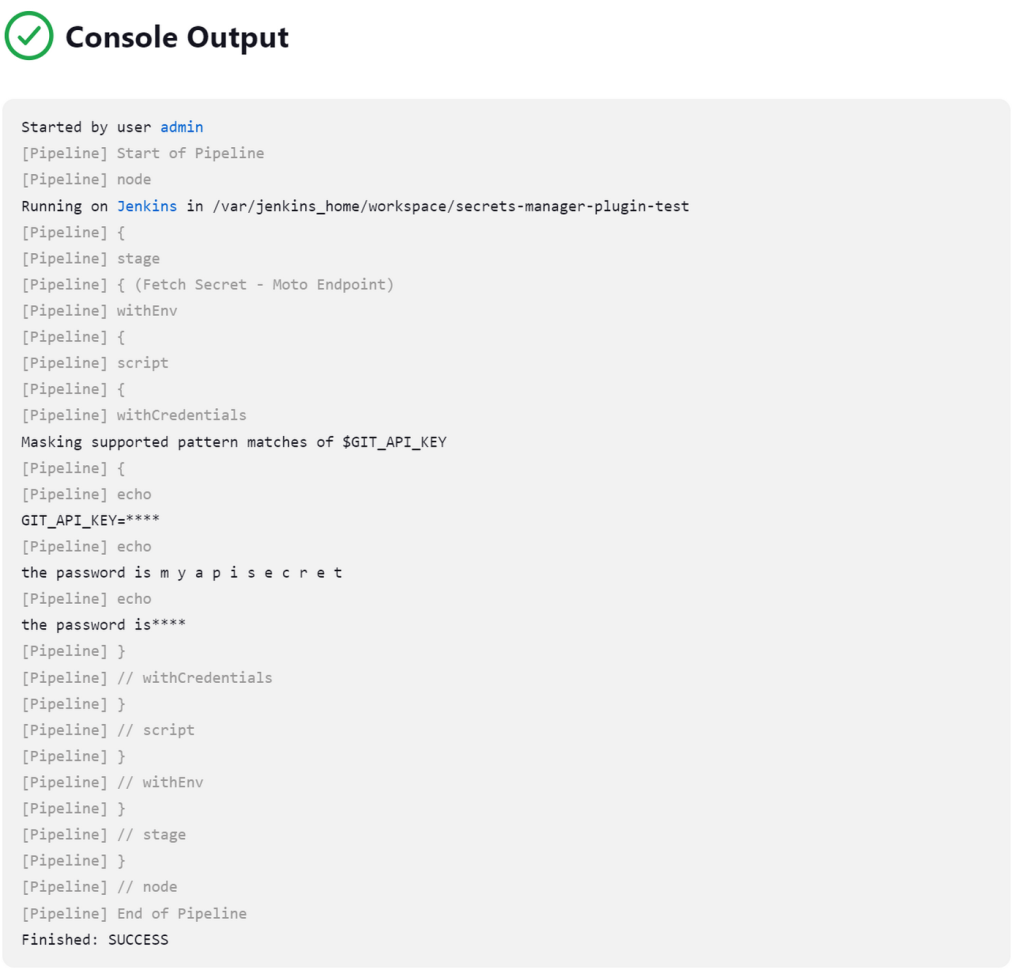The AWS Secrets Manager Credentials Provider Plugin (SM Plugin) for Jenkins provides an option for specifying a custom service endpoint address. This allows SecretsManager credentials to be sourced from mock AWS services, such as Moto server.
This post describes the process of creating a Jenkins/Moto docker compose stack with instructions on how to go about configuring the SM plugin to use Moto.
Local Jenkins/Moto Server Stack using Docker Compose
The following docker-compose.yml sample provisions a Jenkins/Moto stack.
version: '3.8'
services:
motoserver:
image: motoserver/moto:latest
container_name: motoserver
ports:
- 5000:5000
environment:
- MOTO_PORT=5000
jenkins_master:
image: jenkins/jenkins:lts-jdk11
user: jenkins
container_name: jenkins_master
volumes:
- jenkins_home:/var/jenkins_home
ports:
- 8080:8080
volumes:
jenkins_home:
name: jenkins_homeOnce the stack is launched, it provides two networked containers with internal addresses:
jenkins_master:8080
motoserver:5000Bring up the stack:
$ docker compose up -dComplete the Jenkins installation process by visiting http://localhost:8080. To keep the containers “lightweight”, installation of plugins was skipped during the setup process.
Install Required Plugins
AWS Secrets Manager Credentials Provider
- Install the SM provider plugin by navigating to:
Dashboard -> Manage Jenkins -> Plugins -> Available Plugins:
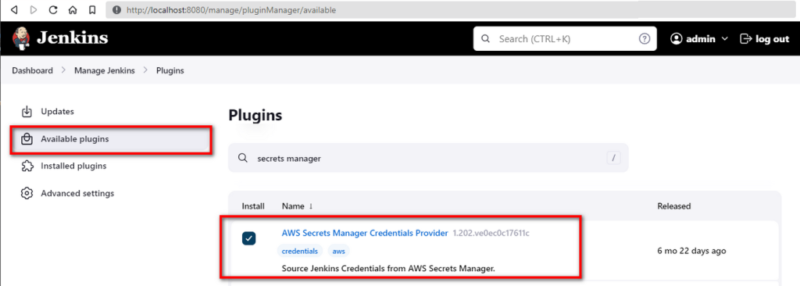
Pipeline: Declarative
In addition to the SM Plugin, the Pipeline:Declarative will also be installed to allow for creation of a test pipeline.
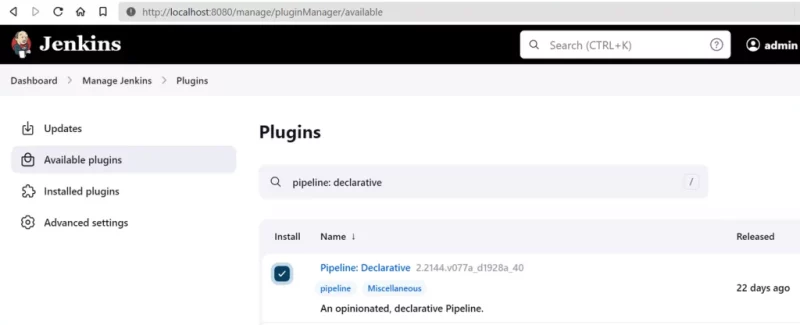
Once both plugins are installed, restart the jenkins_master service by running:
$ docker compose restart jenkins_master
[+] Restarting 1/1
✔ Container jenkins_master StartedConfigure SM Plugin to use Moto Endpoint
To configure the SM provider plugin, navigate to Dashboard -> Manage Jenkins -> System.
- Scroll down to the section
AWS Secrets Manager Credentials Providerand enter the following details:
| Cache | Enabled |
| Credentials Provider | Static |
| AWS Access Key | testing |
| AWS Secret Key | testing |
| Service Endpoint | http://motoserver:5000 |
| Signing Region | US East (N.Virginia) |
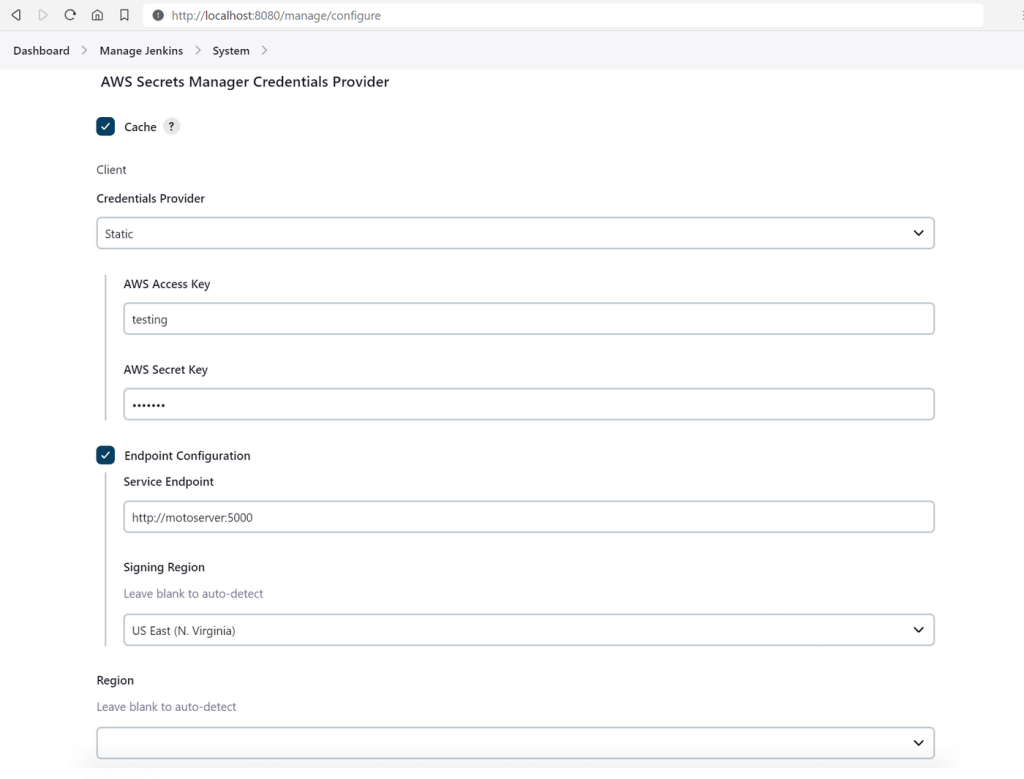
- Save changes
Creating a Secret
For testing, we’ll store a GitHub API Key with a name git-api-key, and value myapisecret using our Moto mock server.
After carefully reading the plugin guidelines for creating and tagging secrets, create the secret.
$ aws --endpoint-url http://localhost:5000
--region us-east-1 secretsmanager create-secret
--name 'git-api-key'
--secret-string 'myapisecret'
--tags 'Key=jenkins:credentials:type,Value=string'
--description 'API token'Output:
{
"ARN": "arn:aws:secretsmanager:us-east-1:123456789012:secret:git-api-key-HYBogf",
"Name": "git-api-key",
"VersionId": "9491472c-bbd6-4387-89d9-2c9a2d36f758"
}The secret should automatically appear at:
Dashboard -> Manage Jenkins -> Credentials.
Note: With credential caching enabled for the plugin, it can take a few minutes before the secret is visible within Jenkins.

Accessing the Secret from a Pipeline
- Create a test pipeline with name: secrets-manager-plugin-test
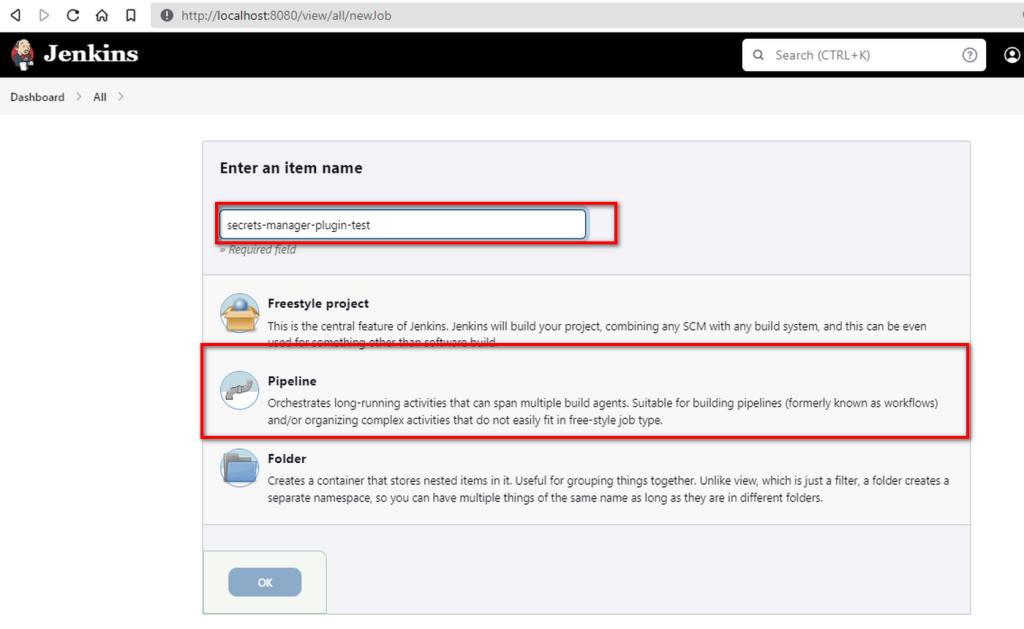
- Use the following pipeline script to access and display the secret to ensure its contents are as expected
pipeline {
agent any
stages {
stage('Fetch Secret - Moto Endpoint') {
environment {
AWS_REGION="us-east-1"
}
steps {
script {
withCredentials([string(credentialsId: 'git-api-key', variable: 'GIT_API_KEY')]) {
print 'GIT_API_KEY=' + "${GIT_API_KEY}"
def charArray = GIT_API_KEY.toCharArray()
def passwd = ""
for (c in charArray) {
passwd += " "+c.toString()
}
println "the password is"+passwd
println "the password is"+passwd.replaceAll(" ", "")
}
}
}
}
}
}- To circumvent the protection mechanism (masking) implemented by plugin(s), an iterator and Groovy’
toCharArray()is used
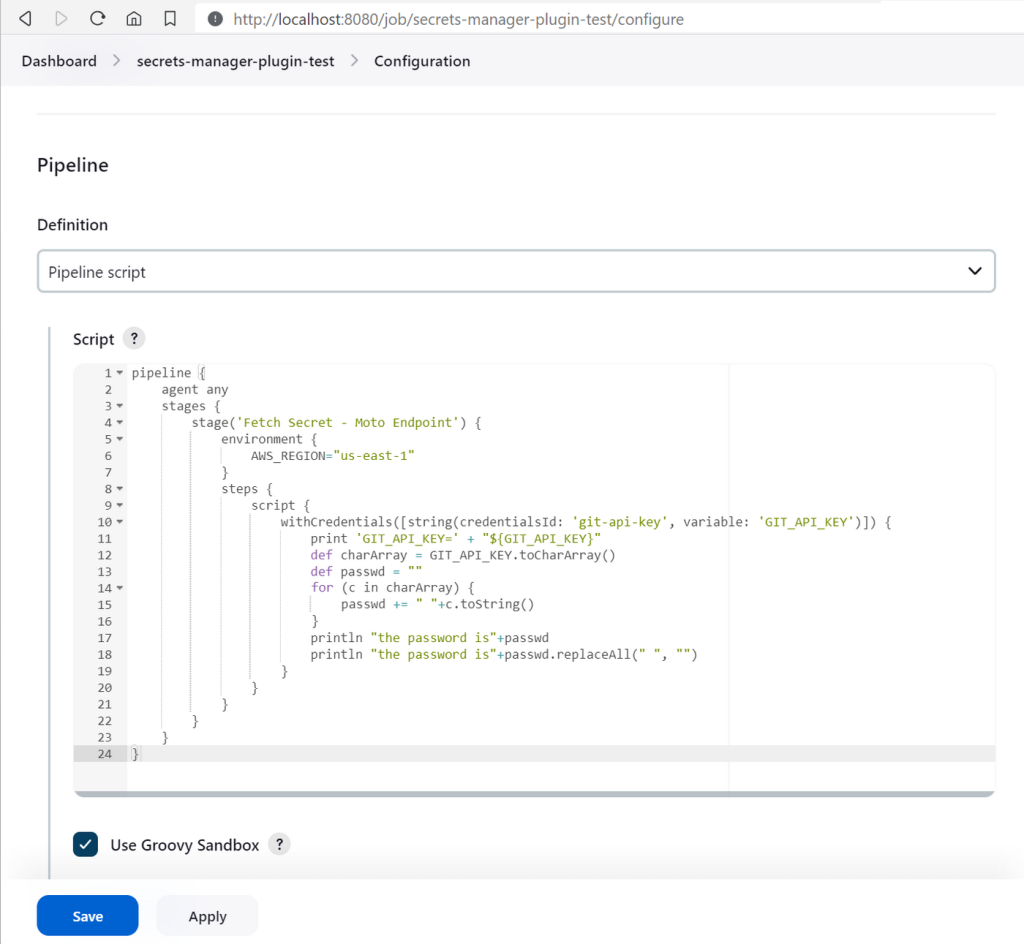
- Save the pipeline and run a test build
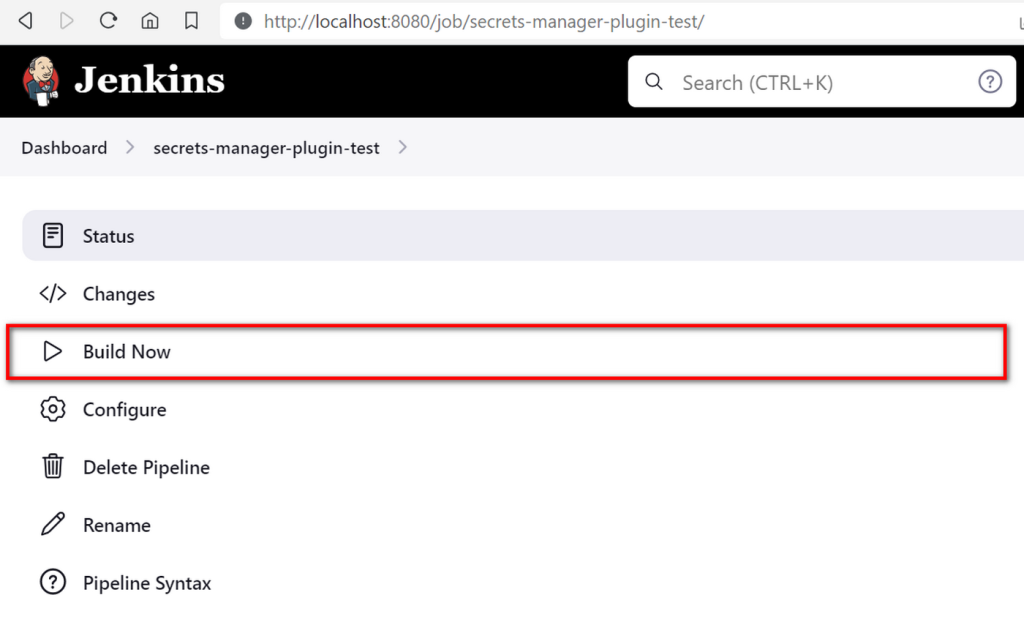
- Check build output log
